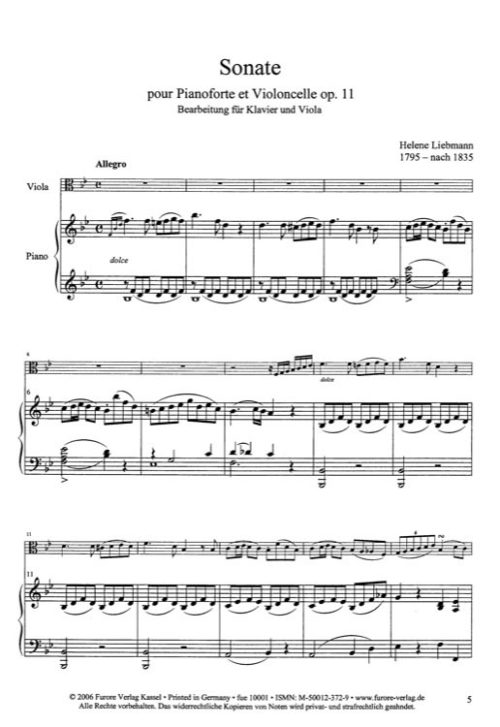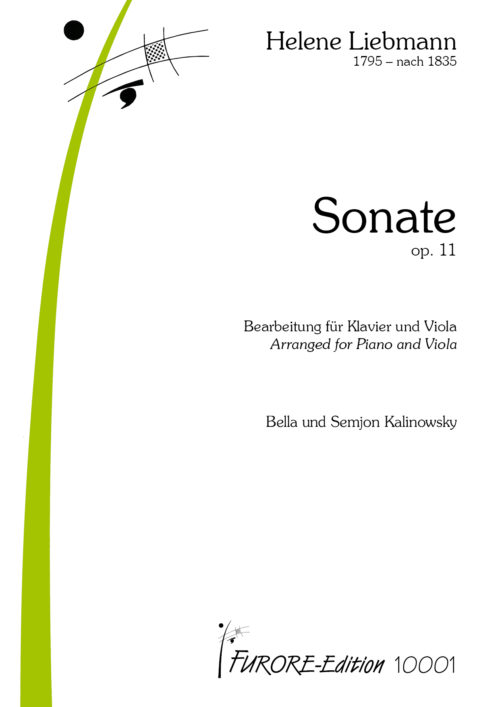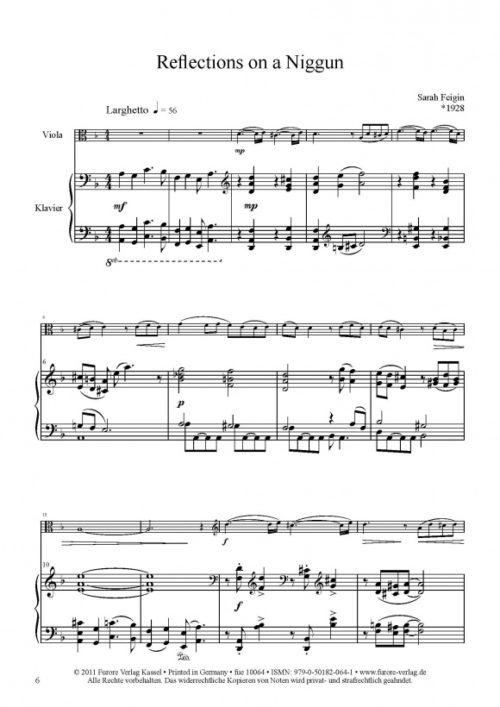Riese, was a German pianist and composer. She was a child prodigy in both activities. Aged ten, she gave a concert in her home town of Berlin, astonishing the audience, who acclaimed her as a brilliant pianist. Her Piano Sonata Opus 1 was published when she was 15. She was born in Berlin and studied with Clementi’s pupil Franz Lauska. According to the dedications on her Op 11, and 12, she later studied with Ferdinand Ries, a former Beethoven pupil. Sometime around 1814 she married, and used her married name on publications after that. It is thought that she and her husband moved first to Vienna and then London in about 1816. No information about whether she continued to compose after 1819 is available; the next reference to her is in Clara Wieck’s (the future Clara Schumann) diary, stating that Liebmann was present at a Hamburg concert of Clara’s in 1835.
Liebmann’s published works include two sets of songs, several sonatas, variations and miscellaneous piano works, two violin sonatas, two piano trios and one piano quartet – the piano is in all her works. They are mostly dedicated to teachers and family members; much of her music is available in library collections and in the archives of her principal publisher C. F. Peters. The Piano Sonatas Ops 1 and 2 received a lengthy review in an 1811 issue of the Allgemeine musikalische Zeitung. The reviewer declared his dread in anticipation of finding “ladies” music, a weak imitation of that written by men, but immediately stated that the music warranted comparison with the early compositions of the great masters. He specially commended the nobility in the first movement of her Op 1, and the inventiveness and brilliance of its concluding Variations. The same review also lavished praise on the composer’s Op 4 Kennst du das Land? – a setting from Goethe’s Wilhelm Meister. The Allgemeine musikalische Zeitung also later published favourable reviews of her Violin Sonata Op 9 and the two piano trios, recommending them as providing enjoyable entertainment for both performers and listeners. Her musical style owes much to Mozart and Haydn.
See also Von Goethe inspiriert gleichnamiger Notenband und CD auf CD: siehe CD
-
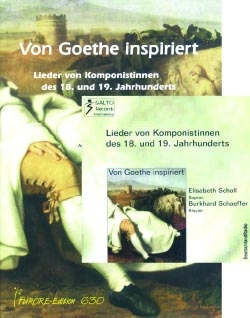
fue 9997
Music book + CD: Inspired by Goethe. Songs by women composers of the 18.th and 19.th Centuries
Anna Amalia, Herzogin von Sachsen-Weimar Annette von Droste-Hülshoff Bettine von Arnim Caroline von Egloffstein Corona Schröter Elise Müller Fanny Hensel, geb. Mendelssohn Helene Liebmann Jeanette Bürde, geb. Milder Johanna Kinkel, gesch. Mathieux, geb. Mockel Josephine Lang Louise Reichhardt Sibylle Mertens-Schaafhausen
-
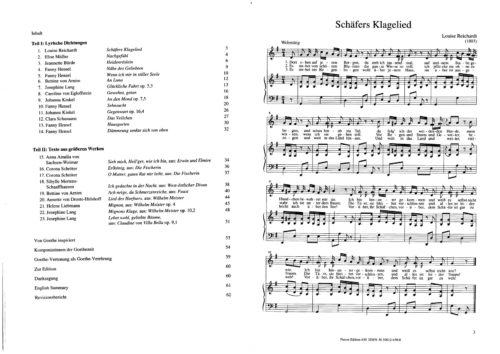
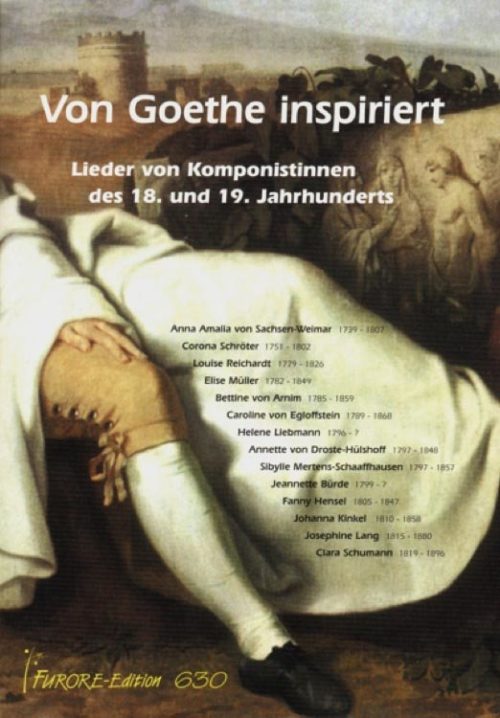
fue 6300
Inspired by Goethe. Songs by women composers of the 18.th and 19.th Centuries
Anna Amalia, Herzogin von Sachsen-Weimar Annette von Droste-Hülshoff Bettine von Arnim Caroline von Egloffstein Corona Schröter Elise Müller Fanny Hensel, geb. Mendelssohn Helene Liebmann Jeanette Bürde, geb. Milder Johanna Kinkel, gesch. Mathieux, geb. Mockel Josephine Lang Louise Reichhardt Sibylle Mertens-Schaafhausen

